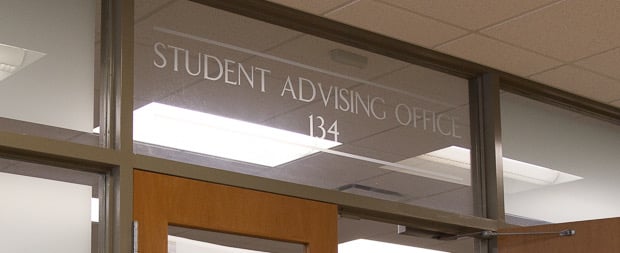The Curriculum, Instruction & Teacher Education, Ph.D. is presently pausing admissions. We expect to review applications again soon. Stay in touch with our college by completing this short interest form.
Coursework
Candidates for the Ph.D. degree will complete at least 15 courses.
- 2 Proseminar courses (TE 901 and TE 902) taken during the first year
- Several courses about educational inquiry and research, including:
- TE 931 (an introductory doctoral course on qualitative methodology)
- CEP 932 or TE 934 (an introductory doctoral course in quantitative methodology)
- Choose one of the following (either (a) or (b))
- A) CEP 930 (an introductory doctoral course on educational inquiry and one course in advanced methodology (e.g., CEP 933, TE 938, TE 939A, B, C, D, E, F, or G)
- B) Two courses in advanced methodology
- TE995 (a research practicum to be undertaken after research courses 1, 2, and 3 have been completed).
- At least three selective core courses offered by the Department of Teacher Education that are selected to contribute to the breadth of one’s understanding of educational issues. Selective courses include all doctoral level courses offered by the department other than TE 901, TE 902, TE 990, TE 994, TE 995, and courses that could be used to fulfill one’s research requirements.
- At least five additional elective courses that form an area of concentration. These may include courses offered by the Department of Teacher Education, by other departments in the College of Education, or by units across campus. The student’s guidance committee must approve both the area and the related courses.
The university’s residency requirement — defined as enrolling in six credits of coursework in two consecutive semesters — must also be met. (Residency does not necessarily mean that a student spends full time on campus, although the program strongly encourages them to do so)
Practicum
As part of the college requirement in inquiry and research, every doctoral student must complete a research practicum. The practicum should occur after completing the introductory educational inquiry and research courses. The practicum generally results in a journal length research paper that is presented orally and in written form to the Practicum Committee. Students enroll in TE 995 credits when completing their practicum research study. The research practicum support students in learning to:
- Propose a significant question or questions grounded in existing theory and building on or responding to other research in a field of interest;
- Select, justify, and implement methods appropriate to the question(s) and research context;
- Gather appropriate evidence/data;
- Subject the evidence/data to careful analysis;
- Reassess prior assumptions and conceptualizations in relation to evidence/data gathered and ongoing analysis;
- Organize and present oral and written reports, that are cogent, focused, and logical, for a community of scholars;
- Respond to input and critiques, and provide advice and comments for others’ research; and
- Revise the written report in response to feedback.
Practicum Committee
The practicum requires a practicum committee. It is the student’s responsibility to construct this committee. The student could form this practicum committee from an already existing group or by creating one that is specific to the practicum. It must include at least one student, who has already completed the practicum, and at least two tenure-stream faculty members to direct the work. One faculty member of the practicum committee must be designated as the practicum director.
Approval of the Practicum Proposal
A written proposal must be approved by the student’s practicum committee and (in the event that the chair of the student’s guidance committee is not part of the practicum committee, also by) the chair of the student’s guidance committee. The written proposal should include: (1) a rationale for the study, including a brief literature review; (2) research question(s) or purpose(s); (3) methodology and method, including plans for data analysis and (4) a brief discussion of educational significance. The student should obtain approval of the practicum proposal and, if applicable, the Institutional Review Board (IRB) prior to beginning the practicum study.
Completion of the Practicum
All members of the committee must approve the written and oral reports. The practicum director is responsible for approval of the final revisions. The practicum director also assigns a Pass/No Pass grade.
Program Plan
The student, advisor/chair and guidance committee share responsibility for planning a program of coursework that both provides the student with appropriate academic knowledge and scholarly perspectives and skills, and satisfies the program’s curricular requirements.
Typically, program plans are submitted before the end of the second year of study—or at a point before the student has completed more than half of the 15 courses in the program. This is done electronically through GradPlan.
The GradPlan is always subject to future additions, deletions or substitutions, as long as the revisions satisfy program requirements and are approved by the student’s guidance committee.
The plan should be organized to conform to the requirements of the program.
Core Studies in Education
Three TE courses (meaning TE is the sole or lead department for the course) numbered 903 – 991 excluding the following: TE 930, TE 931, TE 934, TE 939, TE 990, TE 994 (except for TE 994 section 001) and TE 995.
Area of Concentration
At least five additional courses in the student’s area of concentration.
Comprehensive Exams
After submitting the GradPlan and completing the majority of coursework (approximately 80 percent) the next milestone in a student’s progress toward the degree is the comprehensive examination. Students typically take the examination toward the end of their third year of doctoral study. The university has a five-year time limit for completion of comprehensive exams.
Our comprehensive exams consist of a 5,000-6,000 word essay focused on a question or questions of importance to the field of education. The genre of the essay is intentionally open-ended to allow students to design a program milestone that is productive in supporting them in their scholarly development. Students work with their advisor(s) and guidance committees to craft their comprehensive exam applications, which are due in early-to-mid November. Essays are due at the beginning of March. Specific dates will be shared via the program listserv.
Current MSU students can learn more about the process by accessing the following Sharepoint links:
The Dissertation
After the student has passed the comprehensive examinations, he or she draws upon prior and ongoing work to formulate a dissertation proposal. Students customarily work with their advisors and appropriate other faculty in drafting and revising their proposals before submitting a formal version to their dissertation committee for review and recommendations.
The guidance committee will meet formally to discuss the proposal, ask questions, and evaluate the proposed project in terms of its quality, originality, scope, and appropriateness. The guidance committee may accept the proposal, ask for revisions, or, in rare cases, turn the proposal back to the student for considerable rethinking and rewriting (and another proposal meeting). Three committee members must be present for the proposal meeting to be valid. When they approve the proposal, the committee members sign the appropriate form and forward it to the Ph.D. coordinator, who will file it with the Department Chair and Student Affairs Office.
Depending on the substance and methodology, some dissertation projects will require human subjects clearance from the university. A student’s advisor usually helps with the preparation of the IRB application. Students may not serve as Primary Investigators (PIs) of their dissertation research, and typically the dissertation director serves as the PI and the student is designated as a Secondary Investigator.
Before completing the dissertation, students must have registered for at least 24 semester credits of TE 999 (Dissertation Research). Once the dissertation is complete, the student and committee schedule a final oral examination (often called the dissertation defense) at a mutually acceptable time. Students should consult with their advisor and guidance committee to follow protocol and guidelines regarding timeframe and timeline for submitting the dissertation draft to the committee. The University Calendar specifies a series of dates each semester that should be consulted when scheduling the examination, completing revisions, and submitting the final copies of the dissertation.
After the dissertation has been successfully defended, the student must secure the signatures of all committee members on the Record of Completion of Requirements for Advanced Graduate Studies. In this case, the chair can sign for that committee member in absentia. A committee member who wishes to dissent from the majority decision on the dissertation’s oral defense must submit a statement explaining his or her reasons to the dean of the college.
After the final revisions are complete, the student should follow university guidelines regarding the production of the dissertation. The Graduate School provides forms and guidelines pertinent to producing the dissertation, copywriting the thesis, submitting the product to University Microfilm, and other technical matters. See the MSU Graduate School Guide to Master’s Theses and Doctoral Dissertations.
Publication of Dissertation
It is a university requirement that all dissertations are the required deposit with University Microfilms (UMI). It is the hope of the department that all dissertations lead to published articles, monographs or books. Although dissertation research is unambiguously the intellectual property of the student, the expectation is that authorship of subsequent publications will reflect who contributed to the paper (consistent with professional expectations and ethics in the field of educational research). Thus, in cases in which faculty and students worked very closely on the work, publications might include their names as co-authors.
Final Certification
After the oral examination (defense) of the dissertation has been passed, the final certification form is completed and then sent to the Student Affairs Office. These forms certify that the student has completed all courses listed on the program plan; has enrolled for at least 24 dissertation credits; has fulfilled the residency requirement; has completed a dissertation and has passed an oral examination based primarily on the dissertation; has completed all requirements within eight (8) years of admission to the doctoral program (or has appropriate extensions on file) and has a grade point average of no less than 3.0 in graduate courses taken at MSU.




